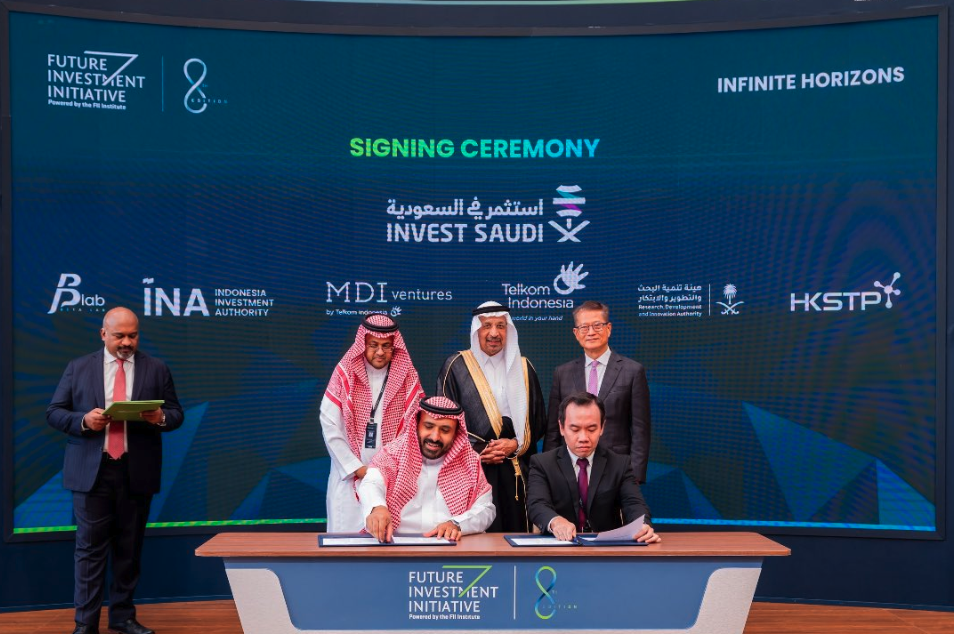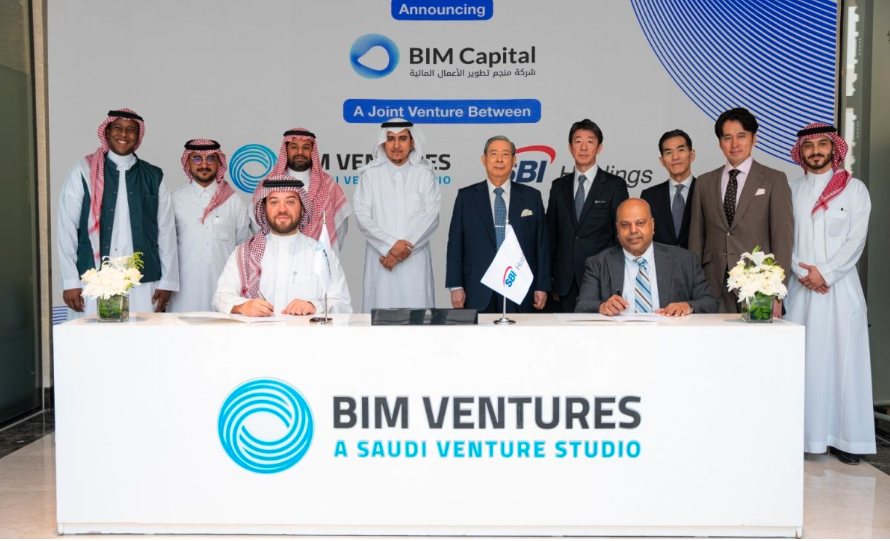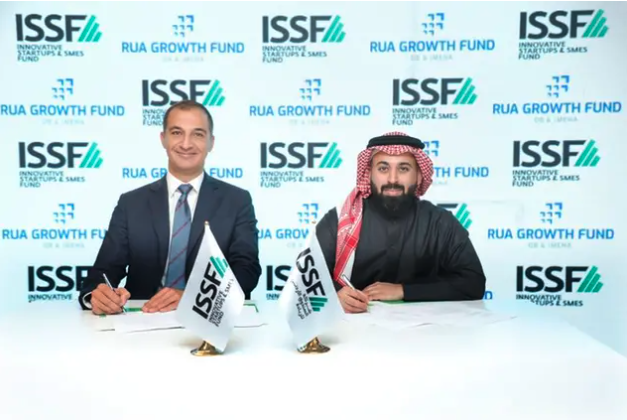RIYADH: Saudi venture capital firms are fueling regional innovation through substantial investments and new initiatives.
Aramco Ventures led New York-based industrial internet-of-things monitoring and communications startup Andium’s $21.7 million series B funding round.
Existing backers, including Climate Investment, Intrepid Financial Partners, and individual investors such as former Citadel Chief Investment Officer Thomas Miglis, also participated. The investment brings Andium’s total funding to over $40 million, following its $15 million series A round in 2021.
The newly secured funds will enable Andium to accelerate its global expansion, scale operations in oil and gas regions in the US and the Middle East, reduce technology costs, and bolster its research and development initiatives.
Wa’ed Ventures allocates $100m for early-stage AI investments
Saudi Aramco’s $500-million financial capital arm Wa’ed Ventures has earmarked $100 million for early-stage artificial intelligence investments. This initiative is part of efforts to position Saudi Arabia as a global leader in the technology, aligning with the Kingdom’s strategic development goals.
The deployment of the fund will be overseen by an advisory board comprising experts from prominent global institutions such as Meta, the Massachusetts Institute of Technology, Oxford University, and Amazon.
A report by PwC projects that artificial intelligence could contribute $135 billion to Saudi Arabia’s economy by 2030, amounting to 12 percent of the country’s gross domestic product.
Wa’ed Ventures has recently invested in Korea’s Rebellions and US-based AiXplain as part of its investment strategy.
Beta Lab launches with $300m to foster deeptech innovation

Beta Lab launched at FII8 in Riyadh. X/@BetalabSA
Saudi Arabia’s new deeptech venture studio, Beta Lab, launched with $300 million in capital at the Future Investment Initiative.
The outfit aims to bolster startups and promote cross-border innovation between the Middle East and Southeast Asia.
This strategic initiative is backed by the Saudi Ministry of Investment, the Research, Development, and Innovation Authority, the Hong Kong Science and Technology Parks Corporation, and MDI Ventures by Telkom Indonesia.
Beta Lab is expected to catalyze growth in the deep tech sector through significant investments and collaborative partnerships.
Tharawat Green Exchange secures $450k for sustainability initiatives
Saudi Arabia-based Web3 provider Tharawat Green Exchange has raised $450,000 from Adaverse, a fund dedicated to Web3 and blockchain investments.
Founded in 2023 by Yakeen Al-Zaki, Hassan Al-Redha, and Yasser Al-Obaidan, Tharawat Green Exchange focuses on leveraging blockchain technology for environmental sustainability, aligning with Saudi Vision 2030.
The capital will support infrastructure and blockchain development, enhance sales and marketing, and help secure Vera certification for Tharawat Green Exchange’s carbon credits.
BIM Capital established to boost Middle East investment

BIM Ventures and SBI Holding announced the establishment of BIM Capital during the FII8 conference in Riyadh. Supplied
Saudi-based BIM Ventures and Japan’s SBI Holding have launched BIM Capital, a joint venture to stimulate investment opportunities in Saudi Arabia and the wider Middle East.
The new organization will focus on private equity, venture capital, debt funds, and real estate investments.
With a target of drawing more than $200 million in foreign direct investment, BIM Capital aims to manage assets worth over $2 billion.
The joint venture seeks to leverage both firms’ expertise to accelerate regional growth and innovation.
ARKTECH raises $1m in pre-seed funding
Saudi proptech company ARKTECH has successfully closed a $1 million pre-seed investment round, led by Core Vision Investment.
Established in 2023 by Waheed Al-Jassas, ARKTECH specializes in utility contract trading to enhance real estate investment returns.
The funding will strengthen the company’s leadership in the property technology sector and support the development of new tech-enabled investment solutions.
Nabt secures $1.5m seed round for B2B marketplace
Saudi foodtech startup Nabt has raised $1.5 million in a seed funding round led by Merak Capital, with additional backing from angel investors.
Launched in 2022 by Abdullah Al-Otaibi, Nabt runs a business-to-business marketplace that directly connects farmers with businesses.
The funding will be used to accelerate product development and expand Nabt’s market presence.
The company is part of the Sunbolah FoodTech Accelerator, an initiative by Saudi Arabia’s Ministry of Environment, Water, and Agriculture to promote innovation in the agricultural sector.
ISSF invests $5m in Rua Growth Fund

ISSF CEO Mohammed Al Muhtaseb, and Turki Aljoaib, managing partner of Rua Growth Fund. ISSF
Jordan’s Innovative Startups and Small and Medium Enterprises Fund has invested $5 million in Rua Growth I LP, a $45-million Saudi Arabia-based venture capital fund focused on early-stage investments in e-commerce, financial technology, enterprise solutions, and software as a service.
This investment aims to leverage Jordan’s robust startup ecosystem and foster innovation, enhancing the competitive edge of local startups in regional markets.
Tadarab expands into Saudi Arabia amid rising demand
Kuwait-based education technology platform Tadarab has expanded operations into Saudi Arabia as part of its strategy to address the growing need for online education solutions in the region.
Founded in 2016 by Zaid Al-Luhaib and Salma Al-Yassin, Tadarab offers courses that support personal and professional development across the Middle East and North Africa region.
The expansion aims to tailor Tadarab’s educational solutions to meet the diverse demands of Saudi learners, benefiting both individuals and corporate clients.
Pass secures $2.7m to expand into Egypt and Saudi Arabia
Qatar-based delivery service app Pass has raised $2.7 million in a pre-series A funding round from undisclosed investors.
Initially launched by the UK’s Peyk in 2020 and later acquired by local entrepreneur Bashar Jaber in 2023, the newly acquired funding will support Pass’s expansion into Egypt and Saudi Arabia and facilitate the development of new products to enhance its market position.
Colis.ma closes $300k pre-seed funding
Morocco’s logistics startup Colis.ma has secured $300,000 in pre-seed funding from Witamax.
Founded in 2022 by Issam Darui, Colis.ma focuses on cross-border logistics services for individuals and small and medium-sized enterprises, aiming to bridge African and European markets.
The funds will be used to strengthen Colis.ma’s operations in Morocco’s five largest regions and expand into six major European countries, with plans for further growth into West Africa.
Pargo expands into Egypt with $4m funding
South African e-commerce logistics startup Pargo has entered the Egyptian market after raising $4 million from 3Capital Ventures, Endeavor, SAAD Investment Holdings, and UW Ventures.
Launched in 2014 by Derk Hoekert and Lars Veul, Pargo provides innovative delivery solutions tailored for the e-commerce sector.
The expansion includes the rollout of collection and return service points across Egypt to support e-commerce growth.























